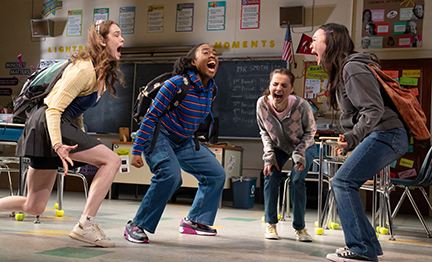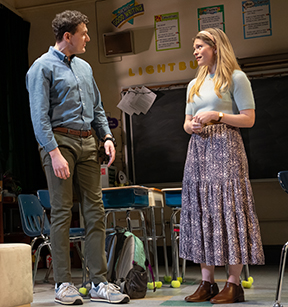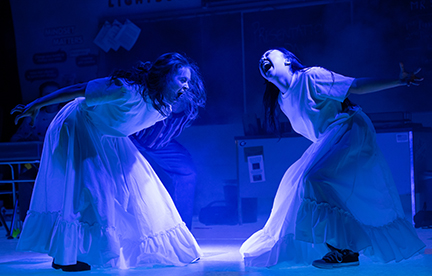By Lucy Komisar
Kimberly Belflower’s takedown of “The Crucible” is clever and sophisticated with a dénouement that will take you by surprise even if the parallel story has been out there all along to be discovered.
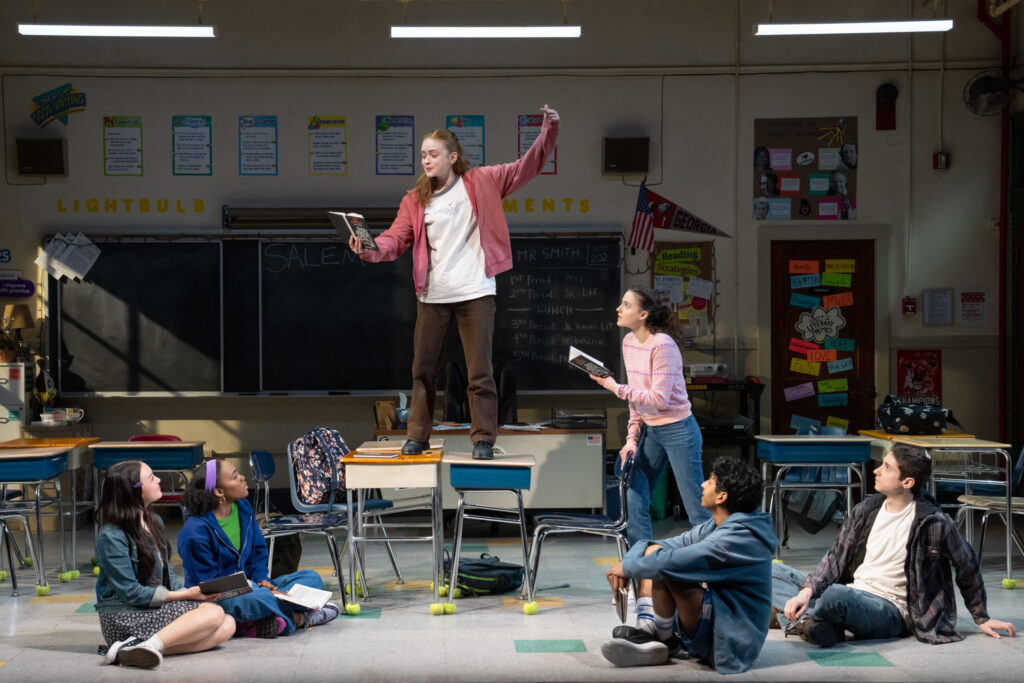
A high school class in Appalachia is reading Arthur Miller’s 1953 play, and as teachers do, Mr. Smith (Gabriel Ebert) divides the class into pairs for them to get creative with the text. They are all 16 or 17.
Meanwhile, it is 2018, and the girls have started a feminism club. A boy (Nihar Duvvuri) joins so he can get extra-curricular credit, but he is amenable to the ideas. Feminism turns out to be a tool to analyze the Miller play. And their lives.
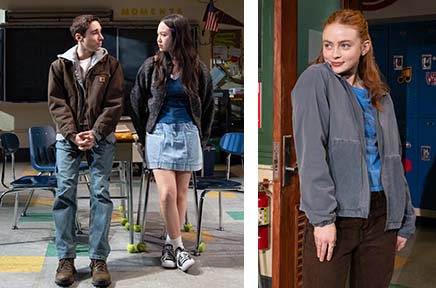
Raelynn (the excellent Amalia Yoo) has broken up with her boyfriend of seven years, Lee (Hagan Oliveras) , after had a romance with another of the girls, Shelby (star-quality Sadie Sink), who suddenly leaves school and is away for three months.
Back to history, in the 1692 Salem witch trials, the upstanding John Proctor admits he had affair with young Abigail. She wants revenge. He calls Abigail a whore.
In the present, the father of one of the girls has been accused of sexual harassment. He calls it a witch hunt, says it was consensual flirtation. (Miller’s play was an attack on McCarthyism.)
The questions the young feminists ask about “The Crucible” get to the points of play and life: who is to blame? Why are the women accused? One student did research and found that men of that time were abusive to women.
We hear Taylor Swift lyrics, “We are never ever geting back together.” They quote Beyoncé and Joan Didion. Raelynn and Beth (a very good Fina Strazza), who is a serious Christian, talk about sex, giggly. They argue about Abigail. Were the young women there puppets or complicit?
Shelby, tall, gangly and sophisticated for her years, declares John Proctor is the villain. Are there villains closer to home? The real story will shock.
The teacher and counselor who deal with the students are conventional, which means they fit right into the school board culture.
Best is a reenactment of the 17th century women dancing in the forest, cited to prove they were witches. Or were they just taking charge of their lives?
The play is a challenge to patriarchy and toxic masculinity on many levels. It shows that Miller did not understand the sexism of the period he described and that his work is in that respect dishonest.
Teenagers should see this play and study it alongside Miller’s.
“John Proctor is the Villain.” Written by Kimberly Belflower, directed by Danya Taymor. Booth Theatre, 222 West 45th St, NYC. Runtime 1hr45min. Opened April 14, 2024, closes July 6, 2025.


